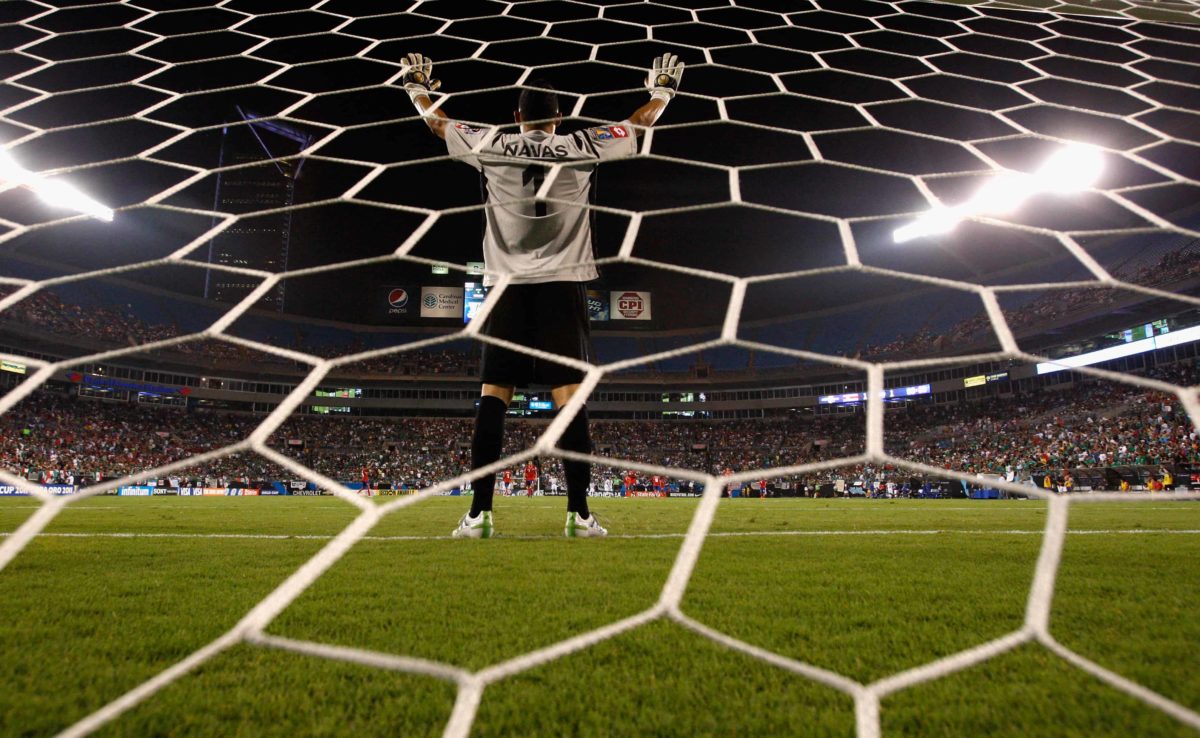In this country, as in so many others, sports metaphors can explain just about anything. They even work in the most complex and serious cases we face as a society, like the “cementazo” that has submerged us in a cocktail of sadness, worry, distrust – and hope, felt by those of us who believe the cure begins when you diagnose the problem.
That’s why I dare to compare our Judicial Branch to a soccer goalie. The goalkeeper is the player the team can’t do without, and the player who can’t fail. The goalie must be the most respected player on the team, the Most Valued Player, a leader who draws on the trust of others. The goalie is the one dressed differently, and the only one left on defense when every other player – every other yard of the playing field – has been left behind.
That’s why the Chinese cement scandal has unlocked such a huge wave of worry among Costa Ricans, because while all three branches of government have been questioned, the Judicial Branch is the most sensitive. It is the branch that we must safeguard above all else, not only so that it can remain among the top 25 in the world, but also so that Costa Rica continues to function.
That’s how I would respond to those who think public attention around the “cementazo” has focused too much on the Judicial Branch and not enough on the legislature or the administration of President Luis Guillermo Solís. The Judicial Branch is our goalie! It’s the one player who, because of the nature of the position, cannot walk off the field.
The “cementazo” and its offshoots have caused Celso Gamboa, the prominent judge of them all in the media, to be suspended while an investigation determines whether he “fixed the game.” This is unprecedented in our history, and that’s not even the only blow we’ve suffered. On top of this, Chief Prosecutor Jorge Chavarría – yes, the head of the organization in charge of prosecuting corruption – has also been suspended.
Chavarría has been temporarily replaced by Emilia Navas, a woman who looks like she means business. I swear that my comparison of the Judicial Branch to a soccer goalie has nothing to do with the fact that she shares a last name with Keylor Navas, but since we’re talking about this: yes, we should hope that Costa Rican justice has agility, concentration, a constant drive for self-improvement, and honesty. And if it fails here and there – ok, but don’t give up and leave the goal unprotected.
Navas’ arrival to this position has generated lots of optimism. Her first moves have been healthily aggressive. As a result, some have already placed her on a hero’s altar. This is as bad as the attitude as many others who think she’s here to put on a media show and place heads on stakes for a bloodthirsty public.
We saw it this week when authorities searched seven locations related to the investigation and arrested businessman Juan Carlos Bolaños, along with six members of the upper levels of management at the Banco de Costa Rica. Some people want these men – and hundreds of others – thrown in jail without even a trial. Others criticize authorities’ actions as part of an unnecessary circus.
It’s worth thinking how people will act if they have information related to the “cementazo” and see that their boss, or the businessman behind the cement-import business, has been arrested. I know that this Friday, when the searches and arrests took place, a person emerged who put valuable information in front of the prosecutors in charge. And no, that person’s name was not published by the media, nor the person’s photo. Those who believe Friday’s operation was overdramatic are simply wrong. None of the searches were livestreamed, and no one was handcuffed in front of the cameras.
I wouldn’t give Prosecutor Navas a merit badge just yet, but I would give her the benefit of the doubt. During her first three weeks she has appeared, at the very least, highly energetic, and that’s a win. What we’ve seen thus far are just the warmup exercises, although we’ve been grateful for them after such a long period during which the Public Ministry seemed prostrate before evidence of corruption. I don’t have any proof on which to base that statement, but there’s no proof to the contrary, either. Time has been wasted, and in a judicial investigation, wasting time is the same as losing evidence – but better late than never.
We should remember that in this country, the Chief Prosecutor is not chosen by the president, but by the members of the Supreme Court of Justice, who are chosen by our legislators. Our legislators, in turn, are nominated by the political parties we vote into power (or not) in every election cycle.
Every one of the links in this chain deserves legal or constitutional reforms that will take more or less time, but we have to start by those that could allow us to have a better keeper guarding our nets. After that, we can put together the defense, the midfield and the offense – but you’ve got to start with a good goalie.
We can name examples of stable governments with horrible leadership (the Italy of Berlusconi, or the United States of Trump), or even non-existent leadership (Belgium from 2010-2011), or with circus-act leadership (Brazil). But a democracy only fails when its Judicial Branch collapses. Case in point: Venezuela.
That’s why the “cementazo” is so scary: it has fallen upon the Judicial Branch and allowed us to see a crisis that was already underway. Our goalie is injured. We can only hope our MVP will recover soon.






